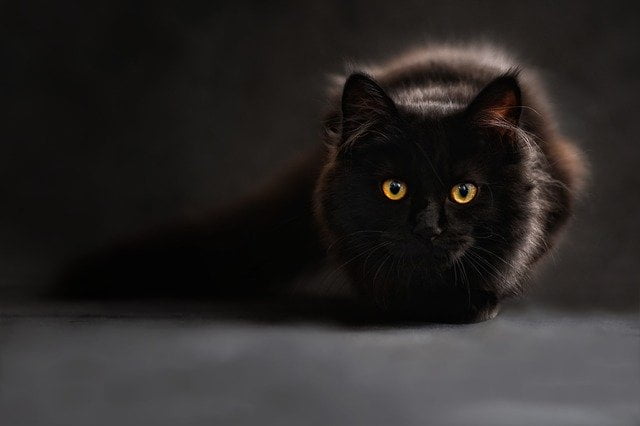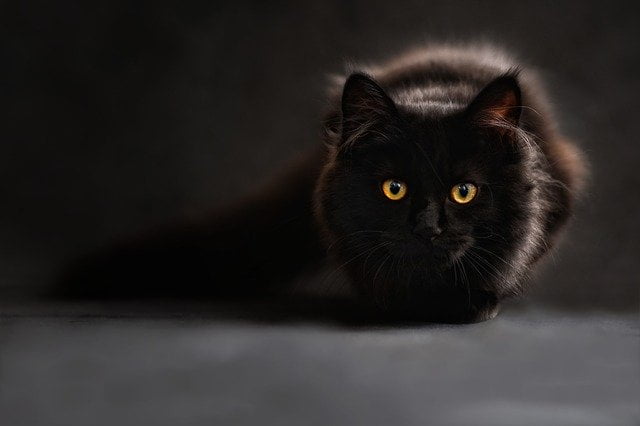In almost every home there are pets. The truth is that having a life full of joy for all members of the family. In the case of the smallest of the house, it helps them to make decisions and to learn the importance of being responsible and taking care of someone else, which will be very beneficial in their personal training.
There are different types of pets; each of them is associated with the personality of its owner. For example, there are some who decide to have exotic pets at home, others opt for birds, because they like their song, and some others decide to have fish, since their harmonious movement transmits peace.

However, the pets par excellence are still dogs and cats. These animals have very different personalities. The dog, for example, is more affectionate and dependent on his owner. He can be trained and he listens well to the orders he receives.
However, in the case of the cat the story is completely different. They tend to be very rough, unaffectionate, and independent. Many of them tend to leave the house for long periods and then return as if nothing had happened. They seem to be unruly animals. However, it must be taken into account that, in their eagerness to train them, they can make your cat suffer from stress.
Yes, animals also face this big problem and they express it in different ways, many of which are very destructive, both for themselves and their environment.
Therefore, if you have a cat at home and you notice that it is stressed, what can you do to manage the situation? In this article you will be aware of everything you need to know about stress in cats and how you can cope with it. Let’s see it right now.
Instructions for managing stress in cats
Cats are animals that are very susceptible to changes that occur in their environment and immediately react by showing symptoms of stress. Now, it is important that you know what the symptoms of said stress are, so that the situation does not end up getting worse. Some of these symptoms are:
- Excessive grooming: he is doing it all the time. It is almost compulsive behavior.
- Excessive scratching: he does it so insistently that he causes various injuries and loses hair. Without a doubt, this is a behavior that reflects anxiety.
- It performs its needs anywhere in the house, outside the sandbox. This trait should not be confused with the common marking on entire cats.
- Hair loss: although it is true that the cat suffers from shedding, this is an unusual amount. In fact, they could become bald.
- Lack of appetite: the cat stops eating or eats in small amounts. In extraordinary circumstances, the opposite can happen, that is, you may binge eat to the point of vomiting. It may also happen that you consume inappropriate substances, a practice known as pica.
- Fear and phobias: will hide from people.
- Stress can make things worse if the feline is already suffering from a chronic illness.
If you notice that your cat remains motionless, has dilated pupils, is panting, exudes a lot of saliva, swallows repeatedly and licks its lips, then you can be sure that your cat is highly stressed. But what can lead to a cat developing stress? Would you like to know?
What do you need to manage stress in cats?
The circumstances that can trigger stress in cats are very varied; everything will depend on the intensity of the stimulus it receives and the character of the animal. This means that cats with greater sensitivity will be affected by small changes in their routine. However, there are situations that stress them all, in general.
One of the most critical moments occurs during removals. For them, this means a change of territory and beginning a process of adaptation to a new environment, a completely different one.
Something similar happens during trips or trips to the vet; this is because he has to leave his safe environment, the space with which he is familiar.
A no less stressful factor is the arrival of another pet or a strange person at home. This could drastically affect your status. The same can be said of the unfriendly interaction with other animals that live with him at home.
Noise, heat, excessive contact with their owners, lack of space and little freedom of movement can be other negative stimuli for your cat, which will end up causing high levels of stress.
In view of how harmful it can be for the animal, how can you manage your cat’s stressful situation? Next, we will be telling you how you should proceed so that things do not get worse.
Tips for managing stress in cats
In order to prevent him from suffering from episodes of stress, it is necessary that we do certain things:
- Keep the potty tray always clean, as they don’t like to use it if it’s dirty. Put it in a quiet place in the house. Avoid them near busy corridors or in rooms with a lot of activity.
- Avoid yelling and abuse. Use positive reinforcement when you want him to do something or put something down. Remember that an aggressive attitude will only generate more tension.
- Create a nice environment for him. Hide toys and food around the house to encourage his exploration skills.
- Spend time playing with him. However, it is not advisable that the game period exceeds 30 minutes. He pauses briefly and then resumes the game. This will be positive both for him and for you.
- Allow him to rest in quiet areas of the house. Since it is a very sensitive animal, anything that puts its peace at risk will trigger its aggressive character.
By doing these things and keeping an eye out for behavior changes, you can be sure of a stress -free pet. Remember that a cat has special needs, many of the things are different from what a dog demands. Therefore, adapt to him and do not expect him to adapt to you, as this can be a stressor.















